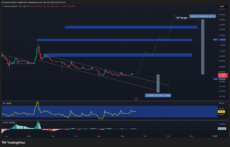- Cyberspace Administration of China (CAC) has instructed big companies to stop purchasing and cancel existing orders for Nvidia’s RTX Pro 6000D chip
- The ban is part of China’s ongoing effort to reduce dependency on US-made AI hardware, especially after restrictive US export rules
- After the news, Nvidia shares dropped in premarket trading by about 1.5%
Cyberspace Administration of China (CAC) has instructed big companies like Alibaba and ByteDance to stop purchasing and cancel existing orders for Nvidia’s RTX Pro 6000D chip.
The ban is part of China’s ongoing effort to reduce dependency on US-made AI hardware, especially after restrictive US export rules. The RTX Pro 6000D was tailored for China to comply with some export rules, but now the regulator says even that chip is off-limits.
After the news, Nvidia shares dropped in premarket trading (around 1.5%), reflecting investors’ concerns about reduced demand in one of the biggest markets.
This isn’t the first time China has done something like this. For instance, in August, the country urged firms not to use Nvidia’s H20 chip due to potential security issues and the need to comply with international export control regulations.
Meanwhile, Alibaba and Baidu have begun using domestically produced AI chips more heavily, which shows that China is seriously investing in building its own chip-making capacity.
Additionally, a few days ago, Chinese regulators opened an antitrust review into Nvidia’s Mellanox acquisition, suggesting the company may have broken some of the promises it made to get the 2020 deal passed.
From AI to blockchain and the possible effects of China’s ban
The banning of Nvidia chips represents a rather notable escalation in the technological rivalry between the United States and China. Beyond tariffs or export bans, China is now proactively telling its firms to avoid even “compliant” US chips and instead shift toward local solutions.
For Nvidia, this could mean losing market share in China at a time when global demand for AI chips is climbing.
As for the crypto industry, some crypto and blockchain projects depend on high-end GPUs for proof-of-work mining, ZK proof generation, or AI used in smart contracts. Reduced access to Nvidia hardware in China might drive more mining and node operations either to local GPU providers or outside China.
Related: Beijing Blocks State-Owned Firms From Stablecoin Businesses in Hong Kong
The push toward hardware decentralization, driven by China’s development of its domestic AI and GPU semiconductor industry (including firms such as Huawei, Baidu, and Cambricon), may lead to a more fragmented global supply landscape. Cryptocurrency infrastructure that depends on international GPU supply chains could experience disruptions or be compelled to adjust.
Also, crypto and blockchain companies with a huge reliance on Nvidia may see effects on their financial standing. At the same time, growing competition in the AI chip sector could redirect investment toward local hardware development, which may also influence innovation within AI-integrated crypto initiatives.
Related: Chinese Firms Eye RMB Stablecoins for Projects, Boosting the Use of Digital RMB
Disclaimer: The information presented in this article is for informational and educational purposes only. The article does not constitute financial advice or advice of any kind. Coin Edition is not responsible for any losses incurred as a result of the utilization of content, products, or services mentioned. Readers are advised to exercise caution before taking any action related to the company.
Source: https://coinedition.com/chinas-ban-on-nvidia-chips-for-state-firms-sends-stock-tumbling-premarket/


